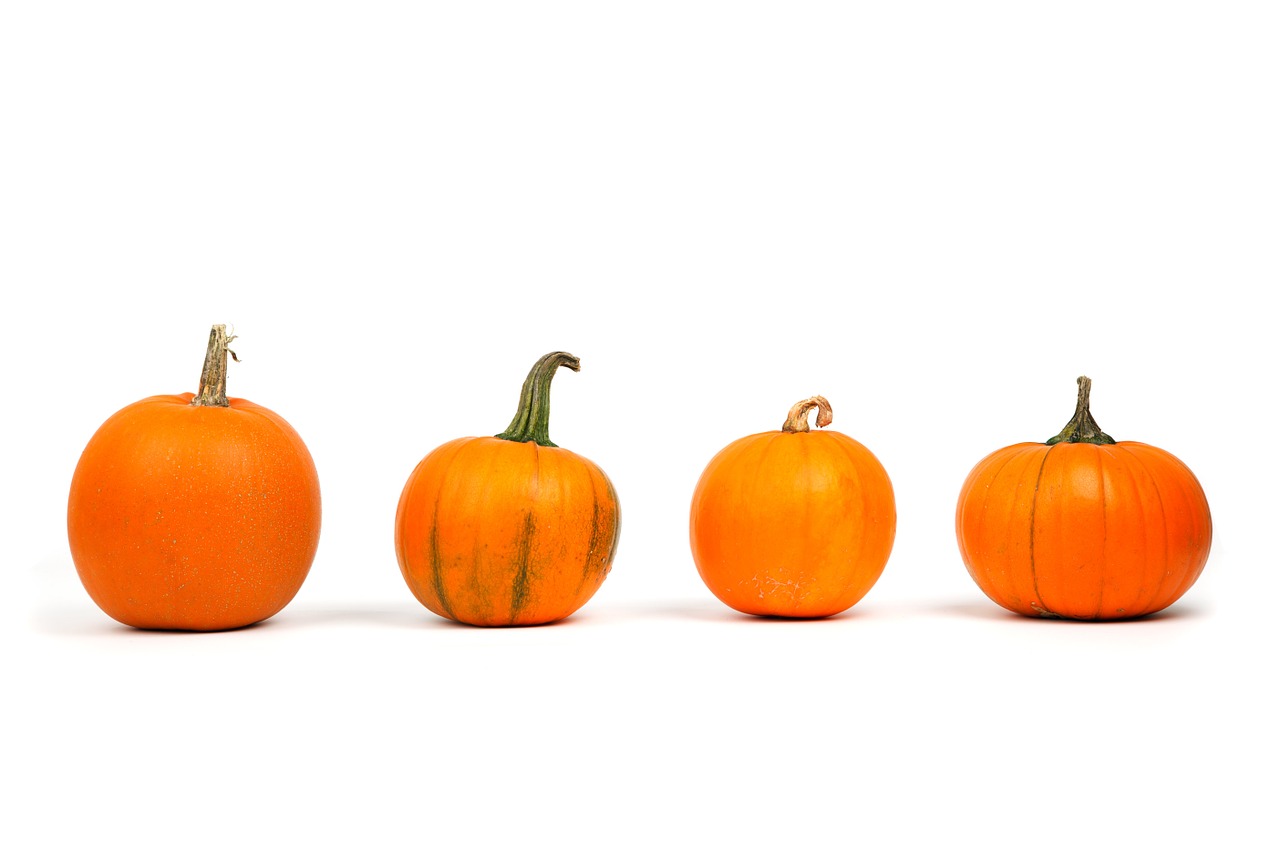Pumpkin is a gourd-like squash of the Cucurbitaceae family. The origin of the pumpkin is not definitively known although it is thought to have originated in North America. Pumpkin is a very versatile food; almost every part of the vegetable is edible (shell, seeds, pulp, leaves, flowers). Although the taste and uses of pumpkin as a food may be common knowledge, especially around this time of year, the medicinal properties of pumpkin can often be overlooked.
The color of pumpkin can be attributed to the pigmented carotenoids beta and alpha carotene, the latter of which generates vitamin A in our body. Pumpkin also contains lutein making it an excellent menu choice to maintain eye health. Pumpkin seeds are often roasted and make an excellent snack in the fall and wintertime. Pumpkin seeds have many health benefits, which include a good source of zinc, tryptophan, magnesium, manganese, phosphorous and phytosterols. These nutrients help to promote immune system, cardiovascular, and reproductive health.
Diabetes
There have been several studies over the past decade investigating the effect of extracts of pumpkin on diabetes. One of the most recent studies found that mice who were fed a pumpkin paste concentrate maintained a lower blood sugar level than the control group. The authors were able to isolate two compounds from the pumpkin paste (trigonelline and nicotinic acid) which seem to have an ability to regulate enzymes involved in triglyceride accumulation and the progression of diabetes.
Another study, looked at a major complication of diabetes; kidney damage, and whether pumpkin can be used to prevent its progression. This 2010 study in the journal of Food Chemical Toxicology used a mixture of flax and pumpkin seed in the diets of rats with alloxan-induced diabetes. The flax and pumpkin seed mixture was able to quench free radicals and increase the level of antioxidants in the blood of the diabetic rats. Furthermore, on kidney biopsy, rats fed the seed mixture had less glomerular hypertrophy and tubular dilatation, meaning healthier kidneys.
Prostate
The application for pumpkin seed oil in prostate health has been a popular topic of scientific investigation. A recent double blind placebo controlled trial investigated the efficacy of supplementation of pumpkin seed oil and saw palmetto oil in middle-aged Korean men with benign prostatic hypertrophy (BPH). The trial was performed over 1 year on 47 patients with BPH. The patients received either potato starch (320 mg/day), or pumpkin seed oil (320 mg/day), or saw palmetto oil (320 mg/day) or a mixture of both pumpkin seed and saw palmetto oil (320 mg/day). The groups taking pumpkin seed and saw palmetto oils all saw a decrease in symptoms and an increase in quality of life after 3 months. Serum prostate specific antigen (a laboratory marker of prostate pathology) was reduced in the group taking a mixture of pumpkin and saw palmetto oil after 3 months. Urinary output (which is obstructed in many cases of BPH) improved in both the group taking pumpkin seed oil and the group taking saw palmetto oil at 6 and 12 months respectively. The study concluded by saying that pumpkin seed oil and saw palmetto oil supplementation is clinically safe and may be used as an effective complementary therapy for BPH.
When ripe, pumpkin can be boiled, baked, steamed or roasted. It can be eaten mashed or as a base for soups, purees and pies. I hope that you now see a whole world of possibilities for this incredible orange vegetable. Pumpkins are lonely after Halloween, so take one home and experiment in the kitchen.
Links
Pumpkin may be a good addition to the plate for Diabetes. Be sure to include exercise into any successful type 2 diabetes treatment protocol.




